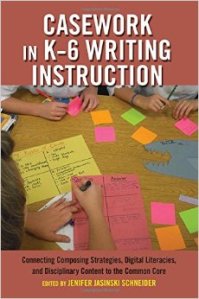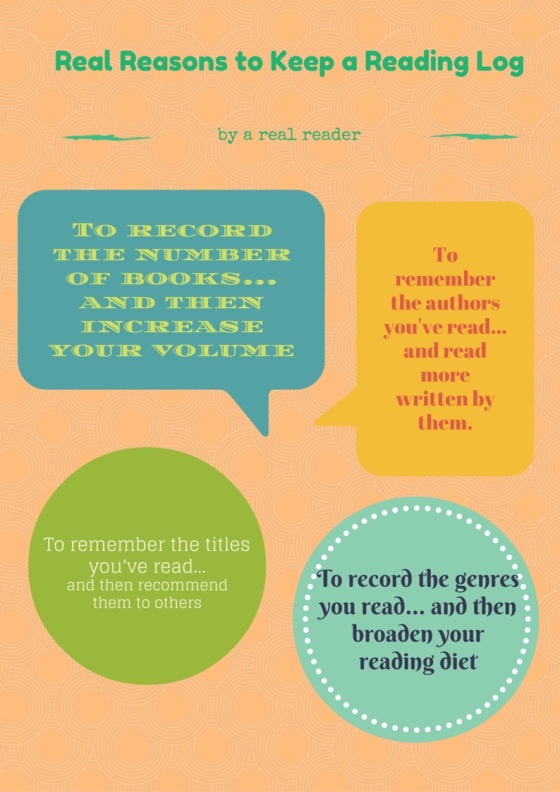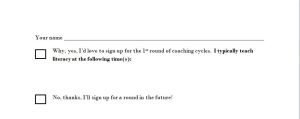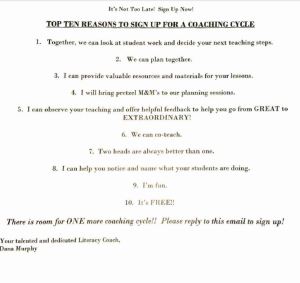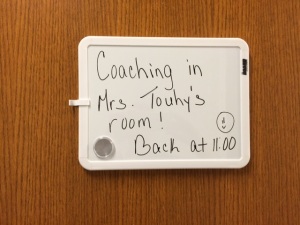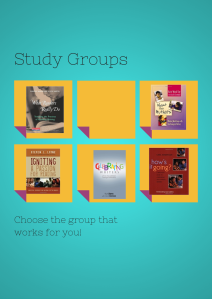I just started my second round of coaching cycles. This first week is about getting to know the kids and getting comfortable in each classroom. To start on solid ground, I want to make sure I have the following established with each teacher:
- our focus for the cycle
- data to pre-assess
- understanding of how we will interact together
Cycle #1: 2nd grade (veteran teacher)
Focus: A Writing Fiction Unit
Pre-Assessment: We will use their first attempt at a fictional book along with the rubric attached to the writing unit.
Working Together: We will decide each week during our weekly planning time. Right now, I am teaching.
A secret: This teacher is hard for me to read. She does not show disappointment or excitement about our work. This is making me anxious in her room.
Cycle #2: 4th grade (veteran teacher)
Focus: To hone her conferring skills
Pre-Assessment: Her own observations and self-reflection. She “already feels better” after 3 lessons.
Working Together: We are conferring side-by-side. So far, she has been starting the conference, and I’ve been coaching her through. We are sort of co-conferring.
A secret: This teacher is a DREAM to work with. She is so dedicated to her job, so smart, and so self-reflective. If I could coach in her room all day, every day, I would.
Cycle #3: Primary Special Ed Self-Contained (veteran teacher but new to our district)
Focus: To move her beginning writers forward
Pre-Assessment: We are using this handy chart to identify where each writer is and what the next steps might be for each child.
Working Together: Co-teaching
A secret: These kids worry me. Their behaviors interfere with the teaching of writing, and I am not really sure how to handle them. I worry that I do not have the knowledge necessary to coach this teacher.
Cycle #4: Kindergarten (veteran teacher)
Focus: A True Stories Writing Unit
Pre-Assessment: A prior writing sample and the rubric attached to the writing unit.
Working Together: I am teaching.
A secret: A secondary goal (unbeknownst to the teacher) is to convince her to release some control and give the kids some freedom during writing workshop.
We are just ending our first week together. I will need to spend some time this weekend reflecting and planning for next week in each of these classrooms. Although it sure is getting hard to concentrate with NCTE 2014 approaching!
